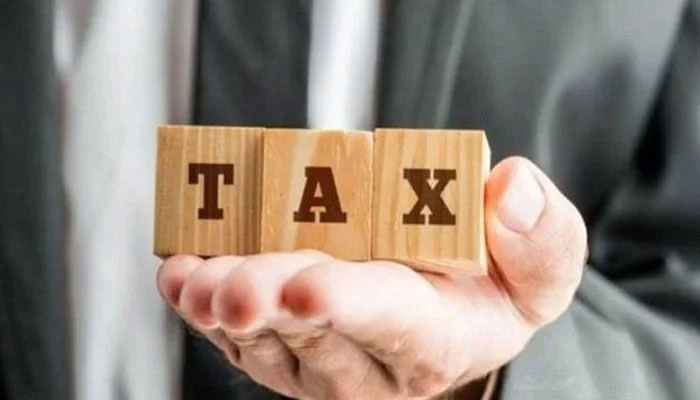Stakeholders urge 5% cut in FED to revive packaged juice sector
LAHORE: The Fruit Juice Council (FJC) has urged the government to reduce the federal excise duty (FED) on the formal packaged juice industry to 15 per cent, arguing that such a move would help the sector recover from its current slump while also boosting government revenue.
An FJC representative said, “At an even lower FED rate of 10 per cent, the industry’s growth would accelerate further. However, considering the country’s economic situation, we propose a 5.0 per cent reduction to ensure a balanced, win-win outcome for both the industry and the government.”
The imposition of a 20 per cent FED, in addition to the existing 18 per cent GST, since 2023 has significantly hampered growth in the formal juice sector. Sales volumes have declined by 45 per cent, leading to a shortfall in government revenue projections for FY2024-25.
The FJC, representing the formal juice sector, is advocating for the proposed 5.0 per cent cut in FED in the upcoming Annual Budget 2025-26. The council contends this would create a mutually beneficial scenario for the industry and the government alike.
Stakeholders stressed the importance of promoting healthier beverage options. Fruit-based juices, approved by food authorities, offer a nutritious alternative due to their fruit content. Local regulations require a minimum of 5.0 per cent fruit content in fruit drinks, 25-50 per cent in nectars, and 100 per cent in pure juices.
According to stakeholders, the introduction of the 20 per cent FED has seen industry sales drop from a projected Rs71 billion in 2022-23 to approximately Rs42 billion last year. The downturn has also adversely affected fruit farmers and pulp processors, with mango procurement volumes falling to 20,233 tonnes in 2024 from 31,000 tonnes in 2017-18.
The high taxation has made products from the formal sector less affordable, with around 42 per cent of the retail price attributed to taxes. This has led many consumers to turn to cheaper, lower-quality, and potentially unsafe products from the undocumented sector, which now holds more than 25 per cent of the market share.
The formal packaged juice industry currently exports to over 30 countries and holds substantial potential for expansion. However, stakeholders warn that without a recovery in domestic demand, export growth could also stagnate.
Minister for Commerce Jam Kamal and Coordinator to the Prime Minister Rana Ihsan have acknowledged the detrimental impact of high taxation on the industry. They emphasised the importance of a strong domestic foundation to support export growth and raised concerns about the expanding undocumented sector, which continues to undermine the formal industry.
-
 Woman Jailed Over False 'crime In Space' Claim Against NASA Astronaut
Woman Jailed Over False 'crime In Space' Claim Against NASA Astronaut -
 James Van Der Beek’s Close Pal Reveals Family's Dire Need Of Donations
James Van Der Beek’s Close Pal Reveals Family's Dire Need Of Donations -
 Prince William And Harry's Cousins Attend 'Wuthering Heights' Event
Prince William And Harry's Cousins Attend 'Wuthering Heights' Event -
 Hailey Bieber Turns Heads Just Hours After Major Business Win
Hailey Bieber Turns Heads Just Hours After Major Business Win -
 King Charles' Andrew Decision Labelled 'long Overdue'
King Charles' Andrew Decision Labelled 'long Overdue' -
 Timothee Chalamet 'forever Indebted' To Fan Over Kind Gesture
Timothee Chalamet 'forever Indebted' To Fan Over Kind Gesture -
 Columbia University Sacks Staff Over Epstein Partner's ‘backdoor’ Admission
Columbia University Sacks Staff Over Epstein Partner's ‘backdoor’ Admission -
 Ozzy Osbourne's Family Struggles Behind Closed Doors
Ozzy Osbourne's Family Struggles Behind Closed Doors -
 Dua Lipa Claims Long-distance Relationship 'never Stops Being Hard'
Dua Lipa Claims Long-distance Relationship 'never Stops Being Hard' -
 BTS Moments Of Taylor Swift's 'Opalite' Music Video Unvieled: See Photos
BTS Moments Of Taylor Swift's 'Opalite' Music Video Unvieled: See Photos -
 Robin Windsor's Death: Kate Beckinsale Says It Was Preventable Tragedy
Robin Windsor's Death: Kate Beckinsale Says It Was Preventable Tragedy -
 Rachel Zoe Shares Update On Her Divorce From Rodger Berman
Rachel Zoe Shares Update On Her Divorce From Rodger Berman -
 Kim Kardashian Officially Takes Major Step In Romance With New Boyfriend Lewis Hamilton
Kim Kardashian Officially Takes Major Step In Romance With New Boyfriend Lewis Hamilton -
 YouTube Tests Limiting ‘All’ Notifications For Inactive Channel Subscribers
YouTube Tests Limiting ‘All’ Notifications For Inactive Channel Subscribers -
 'Isolated And Humiliated' Andrew Sparks New Fears At Palace
'Isolated And Humiliated' Andrew Sparks New Fears At Palace -
 Google Tests Refreshed Live Updates UI Ahead Of Android 17
Google Tests Refreshed Live Updates UI Ahead Of Android 17




